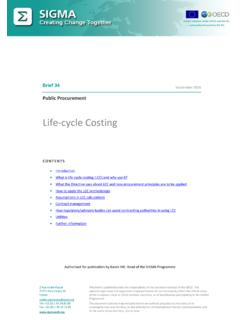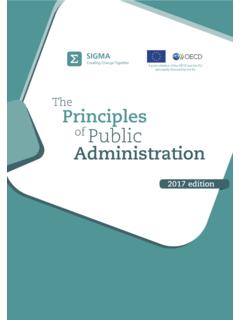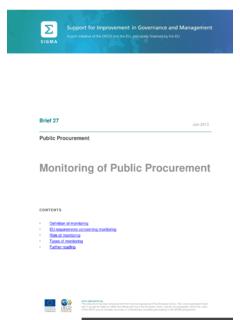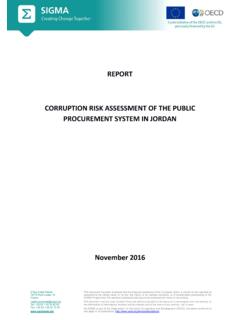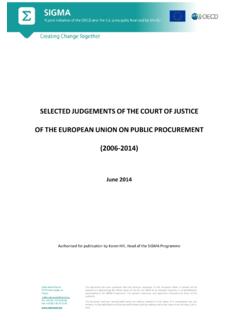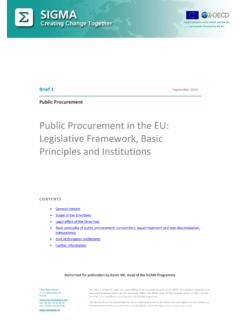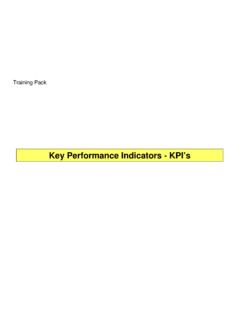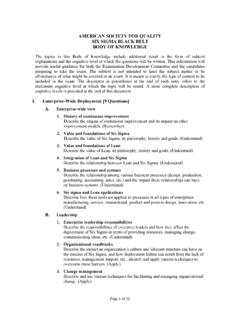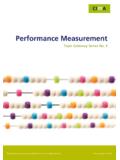Transcription of The Principles of Public Administration - SIGMA - …
1 2017 edition AdministrationThePrinciplesof Public Authorised for publication by Karen Hill, Head of the SIGMA document has been produced with the financial assistance of the European Union (EU). It should not be reported as representing the official views of the EU, the Organisation for Economic Co-operation and Development (OECD) or its member countries, or of partners participating in the SIGMA Programme. The opinions expressed and arguments employed are those of the authors. This document, as well as any data and any map included herein, are without prejudice to the status of or sovereignty over any territory, to the delimitation of international frontiers and boundaries and to the name of any territory, city or area. OECD 2017 The use of this material, whether digital or print, is governed by the Terms and Conditions to be found on the OECD website page of contents1 Table of contents23 Foreword by Johannes Hahn, Commissioner for European Neighbourhood Policy and Enlargement Negotiations, ECForeword by Mari Kiviniemi, Deputy Secretary-General, OECDI ntroduction Framework of Public Administration Development and Service and Human Resource Financial Management23 Endnotes 28 Read more about The Principles of Public Administration 292 Foreword by Johannes HahnForeword by Johannes HahnThe European Commission (EC) is ensuring a strong focus on addressing fundamental reforms early in the enlargement process.
2 This approach contributes to strengthening the credibility of enlargement policy and enhancing its transformative Administration reform (PAR) is a pillar of the enlargement process, together with rule of law and economic governance. All three pillars are closely linked, cross cutting issues of fundamental importance for success in political and economic reforms and building a basis for implementing European Union (EU) rules and standards. A well functioning Public Administration is necessary for democratic governance. It also directly impacts upon governments ability to provide Public services and to foster competitiveness and growth. PAR should lead to enhanced transparency, accountability and effectiveness, and ensure a greater focus on the needs of citizens and business.
3 An adequately managed and professional civil service, better policy planning and co-ordination, sound administrative procedures and improved Public financial management are of fundamental importance for the functioning of the state and for implementing the reforms needed for EU integration. Countries need to increase their efforts to improve their Public administrations at all levels on the basis of national strategies. A strong political commitment is needed to steer the reform process. Recognising the challenges faced by the enlargement countries, the EC is strengthening its support to PAR. The EC aims to make maximum use of existing mechanisms and fora to drive reforms forward, be it through Stabilisation and Association Agreement structures, the accession negotiations or EC-led targeted country-specific initiatives.
4 The EC is also introducing a more structured policy dialogue on PAR with the enlargement countries in Special Groups on PAR. The Principles of Public Administration outlined in this publication, a result of a long-standing successful partnership between the EC and SIGMA , will greatly facilitate progress on this challenging agenda. Johannes HahnCommissioner for European Neighbourhood Policy and Enlargement Negotiations, ECForeword by Mari Kiviniemi3 Foreword by Mari KiviniemiGood governance and a well-functioning Public Administration are essential in building and sustaining trust in government, and in creating the necessary structural reforms for increased living standards in society. The relevance of good Administration became particularly evident during the course of the global financial crisis.
5 Limited resources focused national and international discussions on government performance, making it clear that good governance has a significant impact on how well the money available is turned into systemic results and outcomes. This is a familiar challenge for the governments of countries aiming to integrate with the European Union (EU), as the accession process requires implementation of fundamental reforms within often constrained financial circumstances. The Organisation for Economic Co-operation and Development (OECD) and the European Commission (EC) have united their forces for more than 25 years through the SIGMA initiative. It provides support for strengthening Public administrations and implementing governance reforms in EU potential accession and neighbourhood countries. The Principles of Public Administration are a result of that successful co-operation.
6 They combine EU accession process dynamics with OECD governance expertise and converging decades of experience from both OECD and EU member countries, including former accession countries. The Principles provide a detailed definition of good Public Administration that countries should be aiming for. For the first time, the Principles offer a monitoring framework for governments and policy makers to follow-up the application of the reforms needed over time. Through the strong focus on implementation of reforms and collecting evidence on government performance, the Principles are not only a set of requirements but also assist in designing a Public Administration reform (PAR) vision and serve as a reform helpmate for key decision makers. Taken as a whole, the new, strengthened framework for PAR will focus better the joint efforts of governments, the EC and OECD in improving the performance of Public administrations.
7 Mari KiviniemiDeputy Secretary General, OECD4 IntroductionIntroductionPUBLIC Administration REFORM IS FUNDAMENTAL IN THE EUROPEAN UNION INTEGRATION PROCESS A well-functioning Public Administration is a prerequisite for transparent and effective democratic governance. It is the foundation for the functioning of the state, determining a government s ability to provide Public services and foster competitiveness and growth. It also plays a fundamental role in the European integration (EI) process by enabling the implementation of crucial reforms and efficient accession dialogue with the European Union (EU). Hence, the EU enlargement criteria recognise and emphasise the need for countries to build a strongnational Public Administration with the capacity to pursue the Principles of good Public Administration , and effectively transpose and implement the EU acquis.
8 To strengthen its focus on Public Administration reform (PAR), the European Commission (EC) has outlined six key issues of reform1 and has better integrating reform in the accession process through Special Groups on PAR and stronger links with accession negotiations. These six key reform areas form the basis of the Principles of Public AND FOCUS OF THE Principles OF Public Administration The Principles define what good governance entails in practice and outline the main requirements that countries should follow during the EI process. They also feature a monitoring framework, enabling regular analysis of progress in applying the Principles and setting country benchmarks. The concept of good Administration has been progressively defined by EU countries and is included in the EU Charter of Fundamental Rights2.
9 The notion of a European Administrative Space was set out by SIGMA in 19993. It included components such as reliability, predictability, accountability and transparency, as well as technical and managerial competence, organisational capacity, financial sustainability and citizen participation. Although general criteria for good governance are universal, the Principles are designed for countries which are seeking EU accession and receiving EU assistance through the Instrument for Pre-accession Assistance (IPA). The acquis requirements, along with other EU guidelines and instructions, are the core of the Principles in those areas where acquis is in place. In other areas, the Principles are derived from international standards and requirements, as well as from good practices in member countries of the EU and the Organisation for Economic Co-operation and Development (OECD).
10 As a minimum benchmark of good Administration , countries should ensure compliance with these fundamental Principles . Government attention to specific Principles may vary from country t o country, depending on the country s governance structure, administrative culture, previous reform r ecord and key country-specific challenges. The monitoring framework establishes a coherent set of* See endnotes, for all countries, while allowing each country some flexibility in setting its PAR challenges and objectives. The Principles cover an area of the Public sector referred to as the state Administration . As widely used in the countries of the Western Balkans, this term indicates the two main elements of the scope of the Principles : Public Administration at the state (national or central) level.

